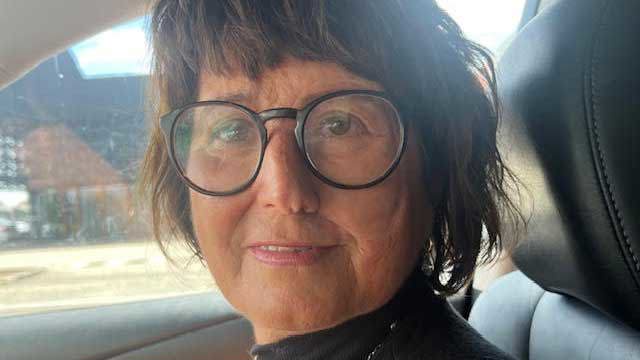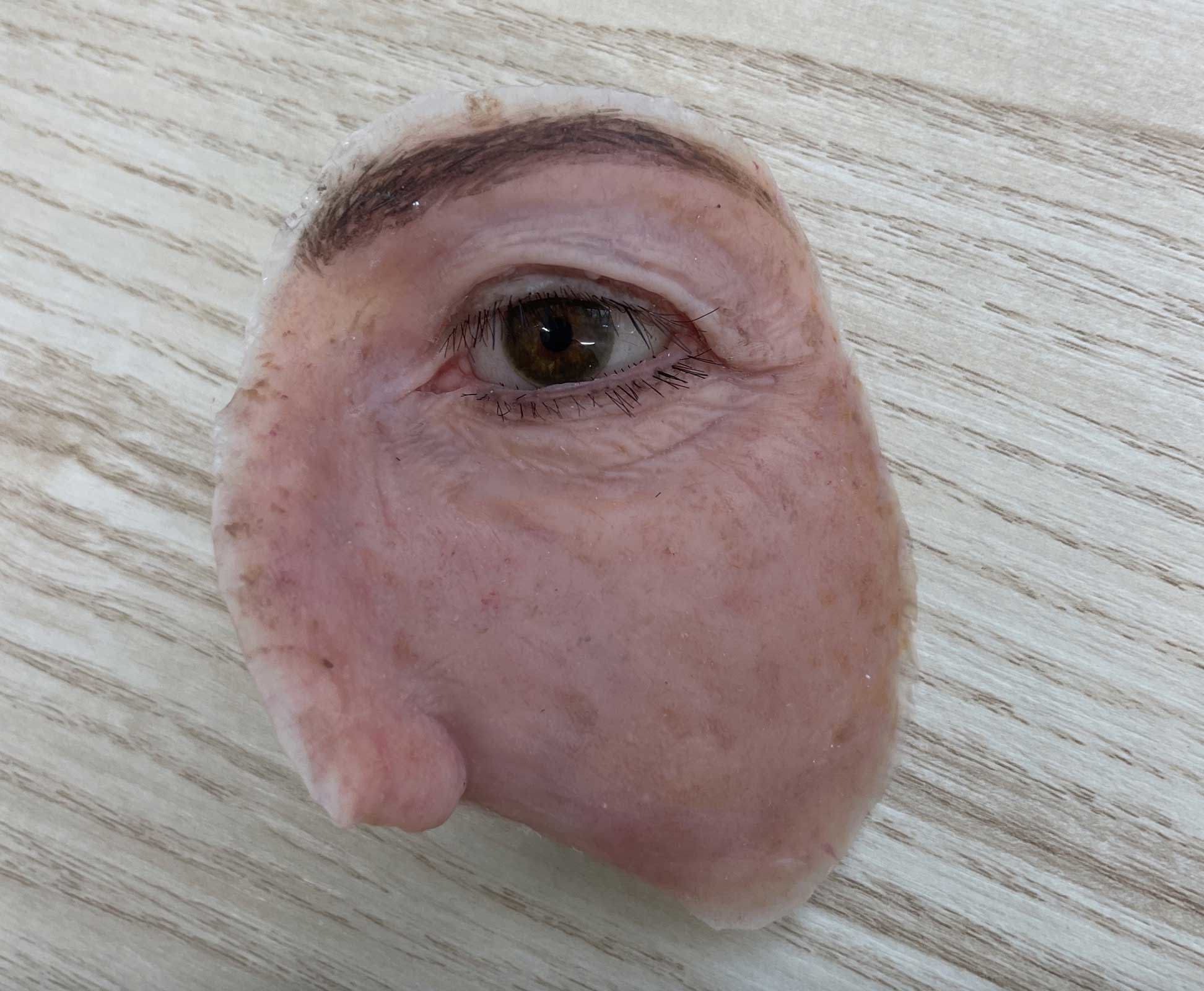Queensland construction manager Tracey Sims is a survivor who has been put through the wringer over the past six years.
Back in 2018, Sims went to the doctor because she had a watery eye. She was told it was just a blocked tear duct.
However, while she was undergoing a minor operation to fix the blocked duct, the surgeon found a tumour.
READ MORE: When China threatens, countries call 'the firm' for help
Sims was diagnosed with a type of skin cancer, squamous cell carcinoma, which was treated with radiation.
Three years later, Sims was told at an annual check-up that the cancer had returned.
Sims said her mind immediately went to the worst possible scenario.
"I was thinking the cancer was right through me," she said.
"I thought, 'I'm too young for this. I've got kids, they're going get married and have kids. I'm not going to be here in six months.'"
"I was handed over to the surgeon who sat me down and said, 'We need to take your eye.'"
To Sims, the news actually came as a relief.
"I said, 'So that's it. You're taking my eye. I thought that is OK."
Sims had her eye, eye socket and part of her cheekbone removed with surgery, and a skin flap was fashioned to cover the cavity left behind.
Chemotherapy and radiation followed.
At the beginning of last year, Sims' skin flap began to fail. A side-effect of the radiation meant the skin was literally melted away.
Meanwhile, Sims was determined to continue on with her life and had gone back to work. She spent the next six or seven months covering her face with a big band-aid, while continuing to look for solutions.
"I was ringing the plastic surgeon saying, what do I do?" Sims said.
"I can't walk around with this massive hole in my head, it's an open wound. You can look and see inside my head."
Sims was put in touch with NSW anaplastologist Sophie Fleming, who makes facial prosthetics.
Fleming fitted Sims with a prosthetic eye which is moulded to the shape of her facial cavity with silicone.
Sims said she was delighted and "in awe" with the result.
"I wasn't worried about going out in the world with a couple of band aids on – but this just gave me that much more confidence to do it. And know that I'm protecting myself as best as I can," she said.
However, the prothesis came at a hefty cost of $6500. Sims said she was stunned to find out the prosthesis was not covered by Medicare or her private health insurance because it was considered "cosmetic" rather than functional.
"To know that I'd had cancer and this really is another part of the treatment, but it's not covered, it is crazy," she said.
"I'm not someone that would go out and get my nose changed or whatever. This is a necessary thing and is a result of cancer. It should be covered.
"There'd be people that can't afford it. I was just lucky that I had that bit of savings."
Sims said she was also told by her life insurance company that a claim for permanent disability would be rejected.
"They told me, 'You've still got another eye,'" she said.
READ MORE: Twelve people injured as Qatar Airways plane hits turbulence
Sims' story comes after a Senate inquiry into the treatment and diagnosis for rare cancers heard cancer survivors were sometimes being forced to go without facial prosthetics or dental implants because they are not covered by Medicare.
"We've been told stories of people not leaving the house, avoiding their grandchildren or using a tissue with tape to cover their face when they go out," Head and Neck Cancer Australia CEO Nadia Rosin told the inquiry.
Fleming said many patients were shocked to hear their facial prosthesis would not be covered by Medicare and it was a big barrier for some.
"It just adds a whole level of distress to their treatment pathway. Once they've gone through that surgery to have a part of their face removed to then be grappling with the idea of having to self-fund their reconstruction because it's prosthetic," Fleming said.
"We have schemes that cover walking sticks, or legs and arms or breasts.
"I think this one just seems to have slipped through the cracks a little bit."
One of the recommendations included in the inquiry's final report, released earlier this month, calls on the Australian Government to "work with state and territory governments to identify the barriers faced by cancer patients requiring rehabilitation, prosthetics and implants as a result of their treatment, with a view to ensuring they have financial support for those services".
Liberal Senator Wendy Askew, who sat on the inquiry's committee, said she and other members were moved to hear the stories of people who needed surgery to areas such as their neck and face.
"Having access to dental implants and facial prosthetics such as an eye, ear, nose or cheek is a vital step on a patient's journey to recovery, restoring their dignity and reversing the disfiguration that they have endured during their treatment," Askew said.
"Reconstruction surgery is available for many other cancers, however is limited for these rare and less common cancers. This recommendation aims to address this inequity."
Rosin said the recommendation was "an opportunity for the Federal Government to completely transform the quality of life of people in Australia who are cured but can't afford to have part of their face replaced after cancer treatment."
"We need to allow these people to survive and to enjoy life in a normal way and be a part of society."
Head and Neck Cancer Australia was currently working in collaboration with expert Head and Neck Cancer clinicians on a funding proposal to put to Health Minister Mark Butler, she said.
9news.com.au has contacted the Department of Health for comment.
Contact reporter Emily McPherson at [email protected]





